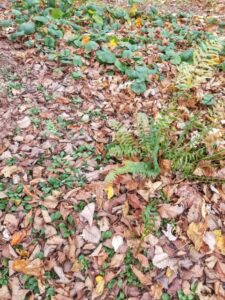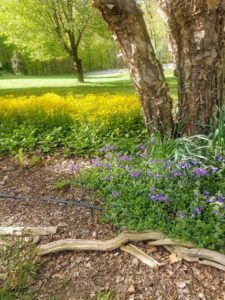All of a sudden, it seems, the leaves have fallen. It’s the time of year to take advantage of their benefits. Fallen leaves form a blanket that protects roots and critters from the coming winter. Over time, microorganisms break down the leaves that plant roots use as source of natural fertilizer and pollinator insects use as a food source. As the “tea” from composting leaves moves into local rivers and streams, it provides a food source for important good bugs and bacteria.
The organic matter also allows more precipitation to soak into the ground, reducing nuisance flooding events and polluted stormwater runoff while recharging groundwater supplies.
Some raking in the fall-putting the leaves on garden beds or between the trees-is good for human health too. Cutting them up with a lawn mower accelerates the decomposing process and creates mulch to use around plants or to put in the compost bin as the carbon-rich ingredient. And your neighbors and the atmosphere will be so appreciative when that gas-powered leaf blower stays in the garage.


